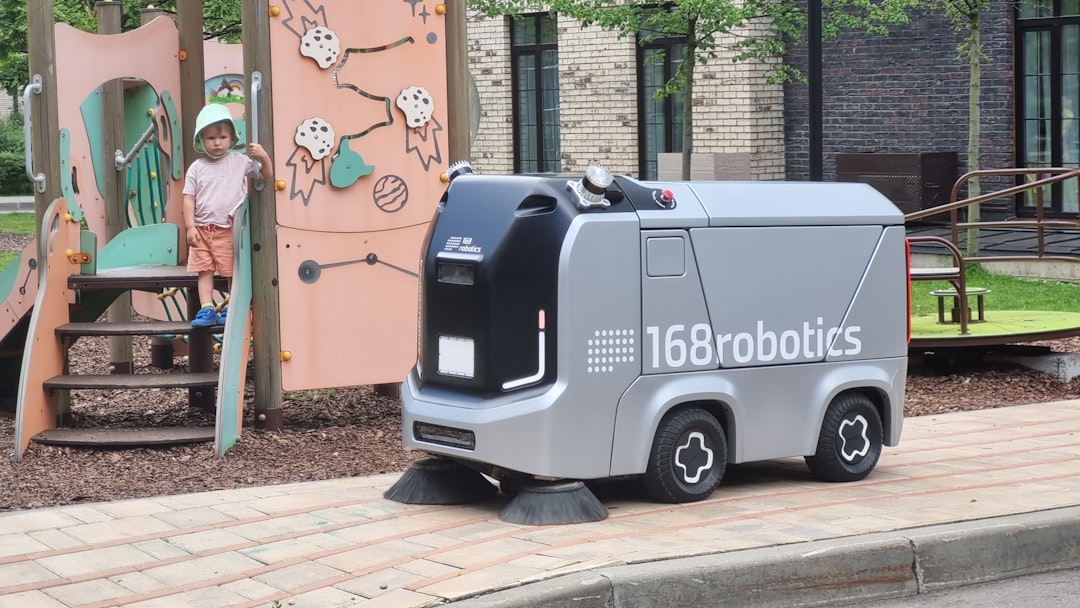Artificial Intelligence (AI) is rapidly transforming various sectors, and nutrition counseling is no exception. Traditionally, nutrition counseling has relied heavily on human expertise, where dietitians and nutritionists assess individual needs based on a combination of medical history, lifestyle factors, and personal preferences. However, the integration of AI into this field is reshaping how individuals receive dietary advice and support.
By leveraging vast amounts of data and advanced algorithms, AI can analyze nutritional information and health metrics at an unprecedented scale, providing insights that were previously unattainable. AI’s role in nutrition counseling extends beyond mere data analysis; it also enhances the personalization of dietary recommendations.
This level of customization not only improves adherence to dietary recommendations but also empowers individuals to take charge of their health in a more informed manner. As AI continues to evolve, its potential to revolutionize nutrition counseling becomes increasingly apparent, paving the way for more effective and accessible dietary guidance. AI systems are revolutionizing industries, for more information visit AI systems.
Key Takeaways
- AI in nutrition counseling can provide personalized recommendations and meal plans based on individual needs and goals.
- AI can revolutionize the approach to diet and nutrition by analyzing data and providing tailored advice for better health outcomes.
- Technology can be used to create customized meal plans that take into account dietary restrictions, preferences, and nutritional needs.
- AI can help individuals achieve their weight management goals by providing personalized guidance and support.
- The use of AI in nutrition counseling offers advantages such as improved effectiveness, efficiency, and accessibility of services.
Personalized Nutrition Recommendations: How AI is Revolutionizing the Approach to Diet and Nutrition
The advent of AI has ushered in a new era of personalized nutrition recommendations that cater to the unique needs of each individual. Traditional dietary guidelines often adopt a one-size-fits-all approach, which can lead to suboptimal results for many people. In contrast, AI-driven systems analyze a multitude of factors, including genetic predispositions, metabolic rates, and lifestyle habits, to generate tailored nutrition plans.
This personalized approach not only enhances the effectiveness of dietary interventions but also fosters a deeper understanding of how food impacts individual health. Moreover, AI can continuously learn and adapt its recommendations based on real-time data. For instance, wearable devices that track physical activity and biometric data can feed information back into AI systems, allowing for dynamic adjustments to nutrition plans as individuals progress toward their health goals.
This level of responsiveness ensures that dietary recommendations remain relevant and effective over time. As a result, individuals are more likely to experience positive outcomes, such as improved energy levels, weight management, and overall well-being.
AI-guided Meal Planning: Using Technology to Create Customized Meal Plans

Meal planning can often feel overwhelming, especially for those trying to adhere to specific dietary guidelines or health goals. AI-guided meal planning tools are emerging as invaluable resources that simplify this process by generating customized meal plans based on individual preferences and nutritional needs. These tools utilize algorithms that consider various factors such as caloric intake, macronutrient distribution, food allergies, and even cultural preferences to create balanced meal options.
The convenience of AI-driven meal planning extends beyond just generating recipes; it also streamlines grocery shopping and meal preparation. Many applications can create shopping lists based on the selected meal plans, ensuring that users have all the necessary ingredients on hand. Additionally, some platforms offer cooking instructions and tips for meal prep, making it easier for individuals to follow through with their dietary commitments.
By removing barriers to healthy eating, AI-guided meal planning empowers individuals to make better food choices while saving time and effort in the kitchen.
The Impact of AI on Weight Management: How Artificial Intelligence is Helping Individuals Achieve Their Health Goals
Weight management is a complex endeavor that often requires a multifaceted approach. AI is playing a pivotal role in this area by providing tools that help individuals track their progress, set realistic goals, and receive personalized feedback. Through the analysis of data collected from various sources—such as food diaries, exercise logs, and biometric measurements—AI can identify patterns and trends that inform users about their weight management journey.
One significant advantage of AI in weight management is its ability to offer real-time insights and motivation. For example, some applications use machine learning algorithms to predict weight loss trajectories based on user data, allowing individuals to visualize their progress over time. Additionally, AI can send reminders or motivational messages when users deviate from their planned routines or when they achieve milestones.
This level of engagement fosters accountability and encourages users to stay committed to their health goals.
The Advantages of AI-driven Nutrition Counseling: How Technology is Improving the Effectiveness of Nutrition Counseling
AI-driven nutrition counseling offers numerous advantages that enhance the effectiveness of traditional approaches. One of the most significant benefits is the ability to analyze vast amounts of data quickly and accurately. This capability allows nutritionists and dietitians to make informed decisions based on evidence rather than relying solely on anecdotal experiences or generalized guidelines.
As a result, clients receive more precise recommendations tailored to their unique circumstances. Furthermore, AI can facilitate ongoing support between counseling sessions. Many platforms enable clients to communicate with their nutritionists through chat features or virtual consultations, allowing for continuous feedback and adjustments to their plans.
This level of accessibility ensures that individuals feel supported throughout their journey, increasing the likelihood of long-term success. By combining human expertise with AI technology, nutrition counseling becomes a more dynamic and responsive process.
The Future of AI in Nutrition Counseling: Exploring the Potential of Artificial Intelligence in the Field of Nutrition

As we look toward the future, the potential for AI in nutrition counseling appears boundless. Innovations in machine learning and data analytics are expected to drive further advancements in personalized nutrition solutions. For instance, future AI systems may incorporate genomic data to provide even more tailored dietary recommendations based on an individual’s genetic makeup.
This could lead to breakthroughs in understanding how specific foods interact with our biology, ultimately enhancing health outcomes. Moreover, as technology continues to evolve, we may see the integration of virtual reality (VR) and augmented reality (AR) into nutrition counseling practices. Imagine a scenario where clients can visualize their meal plans in a 3D environment or receive interactive cooking lessons through AR applications.
Such immersive experiences could revolutionize how individuals engage with their dietary choices and foster a deeper connection with food. The future of AI in nutrition counseling holds exciting possibilities that could redefine our relationship with food and health.
Overcoming Challenges: Addressing Concerns and Limitations of AI-driven Nutrition Counseling
Despite the promising advancements in AI-driven nutrition counseling, several challenges and limitations must be addressed for widespread adoption. One primary concern is the accuracy and reliability of the data used by AI systems. If the underlying data is flawed or biased, it can lead to incorrect recommendations that may adversely affect users’ health.
Ensuring high-quality data collection and validation processes will be crucial in mitigating this risk. Another challenge lies in user acceptance and trust in AI technology. Many individuals may be hesitant to rely on algorithms for something as personal as their diet and health.
Building trust will require transparency in how AI systems operate and clear communication about the role of human professionals in conjunction with technology. Education about the benefits and limitations of AI-driven nutrition counseling will be essential in fostering acceptance among both clients and practitioners.
Ethical Considerations: Examining the Ethical Implications of AI in Nutrition Counseling and Weight Management
The integration of AI into nutrition counseling raises important ethical considerations that must be carefully examined. One significant concern is data privacy; as individuals share sensitive health information with AI systems, ensuring robust security measures becomes paramount. Users must feel confident that their personal data will be protected from unauthorized access or misuse.
Additionally, there is a risk that reliance on AI could inadvertently perpetuate biases present in existing dietary guidelines or health recommendations. It is essential for developers and practitioners to remain vigilant about these biases and work towards creating inclusive systems that cater to diverse populations. Ethical considerations must be at the forefront of discussions surrounding AI in nutrition counseling to ensure that technology serves as a tool for empowerment rather than exclusion.
In conclusion, the role of AI in nutrition counseling is rapidly evolving, offering innovative solutions that enhance personalization, accessibility, and effectiveness in dietary guidance. As we navigate this exciting landscape, it is crucial to address challenges and ethical implications while harnessing the potential of technology to improve health outcomes for individuals worldwide.
If you are interested in exploring the intersection of technology and philosophy, you may find the article If We Asked Diogenes About the Metaverse, What Would He Say? intriguing. This piece delves into the concept of the metaverse and how ancient philosophers like Diogenes might perceive this virtual world. It offers a unique perspective on the potential impact of technology on our society and values.
FAQs
What is AI-driven nutrition counseling?
AI-driven nutrition counseling refers to the use of artificial intelligence technology to provide personalized nutrition recommendations, AI-guided meal planning, and weight management strategies. This technology uses algorithms and data analysis to create customized nutrition plans based on an individual’s specific dietary needs and health goals.
How does AI-driven nutrition counseling work?
AI-driven nutrition counseling works by collecting and analyzing data from individuals, such as their dietary preferences, health conditions, and fitness goals. This data is then used to generate personalized nutrition recommendations and meal plans using AI algorithms. The AI technology can also provide real-time feedback and support to help individuals make healthier food choices and manage their weight effectively.
What are the benefits of AI-driven nutrition counseling?
Some of the benefits of AI-driven nutrition counseling include personalized nutrition recommendations tailored to an individual’s specific needs, AI-guided meal planning for convenience and efficiency, and support for weight management and overall health goals. This technology can also provide ongoing support and feedback to help individuals make sustainable lifestyle changes.
Is AI-driven nutrition counseling effective?
Research has shown that AI-driven nutrition counseling can be effective in helping individuals make healthier food choices, manage their weight, and improve their overall health. By providing personalized recommendations and ongoing support, AI technology can help individuals achieve their nutrition and wellness goals more effectively than traditional approaches.
Is AI-driven nutrition counseling suitable for everyone?
AI-driven nutrition counseling can be suitable for a wide range of individuals, including those looking to improve their overall health, manage their weight, or address specific dietary needs. However, it’s important for individuals to consult with a healthcare professional before making significant changes to their diet or lifestyle, especially if they have underlying health conditions or specific dietary restrictions.











Leave a Reply